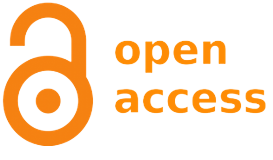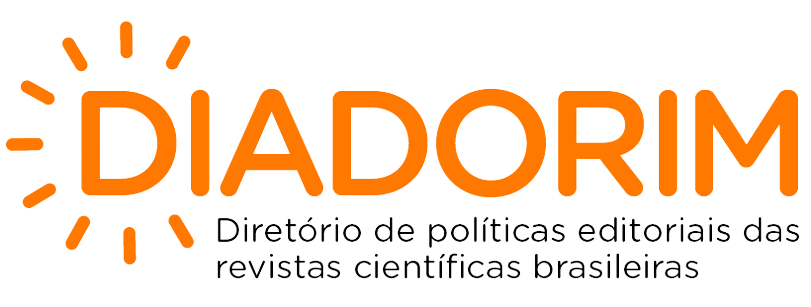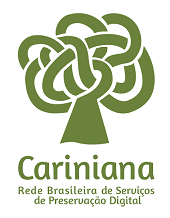Information access law: a framework in the democratic process
DOI:
https://doi.org/10.5433/2317-4390.2017v6n2p119Keywords:
Document, Document management, Access to information, TransparencyAbstract
Introduction: We live in a period in which the democratic institutions of this country, belonging to the public power, are in disrepute before the Brazilian civil society. In this context, the provision of government information to all citizens is imperative.
Objective: This article aims to present the importance of the Archives as documentary custody institutions, discussing, in parallel, the Law on Access to Information (LAI), no. 12,527 / 2011 and observing the extent to which it is followed in Brazil.
Methodology: To perform this work, a bibliographical analysis was established, associated to the comparison of iconography, with statistical content.
Results: It was evidenced that the above mentioned law is not fulfilled in most of the municipalities analyzed, just as the Public Prosecutor and the Judiciary are the institutions that most refuse to give access to the required documents.
Conclusion: We can conclude that, in our society, private interests prevail over the public interest, and it is necessary for LAI to be better disseminated by the mass media and educational institutions (public and private) so that the applicants can assert their rights to access transparent and correct information.
Downloads
References
BRASIL. Constituição da República Federativa do Brasil (1988). Disponível em: http://www.planalto.gov.br/ccivil_03/Constituicao/Constituicao.html. Acesso: em: 01 jul. 2016.
BRASIL. Lei 12.527 de 2011. Regula o acesso a informações. Disponível em: http://www.planalto.gov.br/ccivil_03/_ato2011-2014/2011/lei/l12527.htm. Acesso em: 01 jul. 2016.
BRASIL. Ministério da Transparência e Controladoria Geral da União. Panorama dos Governos Municipais Escala Brasil Transparente - 3. avaliação [2016]. Disponível em: https://relatorios.cgu.gov.br/Visualizador.aspx?id_relatorio=23. Acesso em: 12 fev. 2018.
COSTA, C. L. Intimidade versus Interesse Público: a Problemática dos Arquivos. Estudos Históricos, Rio de Janeiro, v. 11, n. 21, p. 189-199, 1998. Disponível em: http://bibliotecadigital.fgv.br/ojs/index.php/reh/article/viewFile/2066/1205. Acesso em: 01 jul. 2016.
UNESCO. Declaração Universal dos Direitos Humanos. 1948. Disponível em: http://www.colegioser.com.br/arquivos/atividades_pv/redacao/direitos_hum anos.p. Acesso em: 18 fev. 2018.
FERRAREZI, L; ROMÃO, L. M. S. Arquivo, documento e memória na concepção discursiva. Encontros Bibli: Revista Eletrônica de Biblioteconomia e Ciência da Informação, Florianópolis, v. 12, n. 24, p. 152-171, 2007. Disponível em: https://periodicos.ufsc.br/index.php/eb/article/view/1518- 2924.2007v12n24p152/414. Acesso em: 01 jul. 2016.
GALF, R; SAKAY, J. Quase metade dos principais órgãos públicos brasileiros descumprem a Lei de Acesso à Informação. Achados e Pedidos, 2017, 36 p. Disponível em: http://www.achadosepedidos.org.br/uploads/publicacoes/Relatorio_LAI_18091 7.pdf. Acesso em: 12 fev. 2018.
LEITÃO, A. M. Fundo DEOPS, Organização e Manutenção. Arquivos, Patrimônio e Memória: trajetórias e perspectivas. São Paulo: Editora Unesp, 1999. p. 139-141.
MAGLIANO FILHO, R. 2017. Um caminho para o Brasil: a reciprocidade entre sociedade civil e instituições. São Paulo: Contexto, 2017. 223 p.
Downloads
Published
How to Cite
Issue
Section
License
Copyright (c) 2017 Informação@Profissões

This work is licensed under a Creative Commons Attribution 4.0 International License.
A revista se reserva o direito de efetuar, nos originais, alterações de ordem normativa, ortográfica e gramatical, com vistas a manter o padrão culto da língua e a credibilidade do veículo. Respeitará, no entanto, o estilo de escrever dos autores. Alterações, correções ou sugestões de ordem conceitual serão encaminhadas aos autores, quando necessário.
O conteúdo dos textos e a citação e uso de imagens submetidas são de inteira responsabilidade dos autores.
Os trabalhos publicados passam a ser propriedade da revista Informação& Profissões, ficando sua reimpressão total ou parcial sujeita a autorização expressa da revista. Em todas as citações posteriores, deverá ser consignada a fonte original de publicação, no caso a Informação&Profissões.












